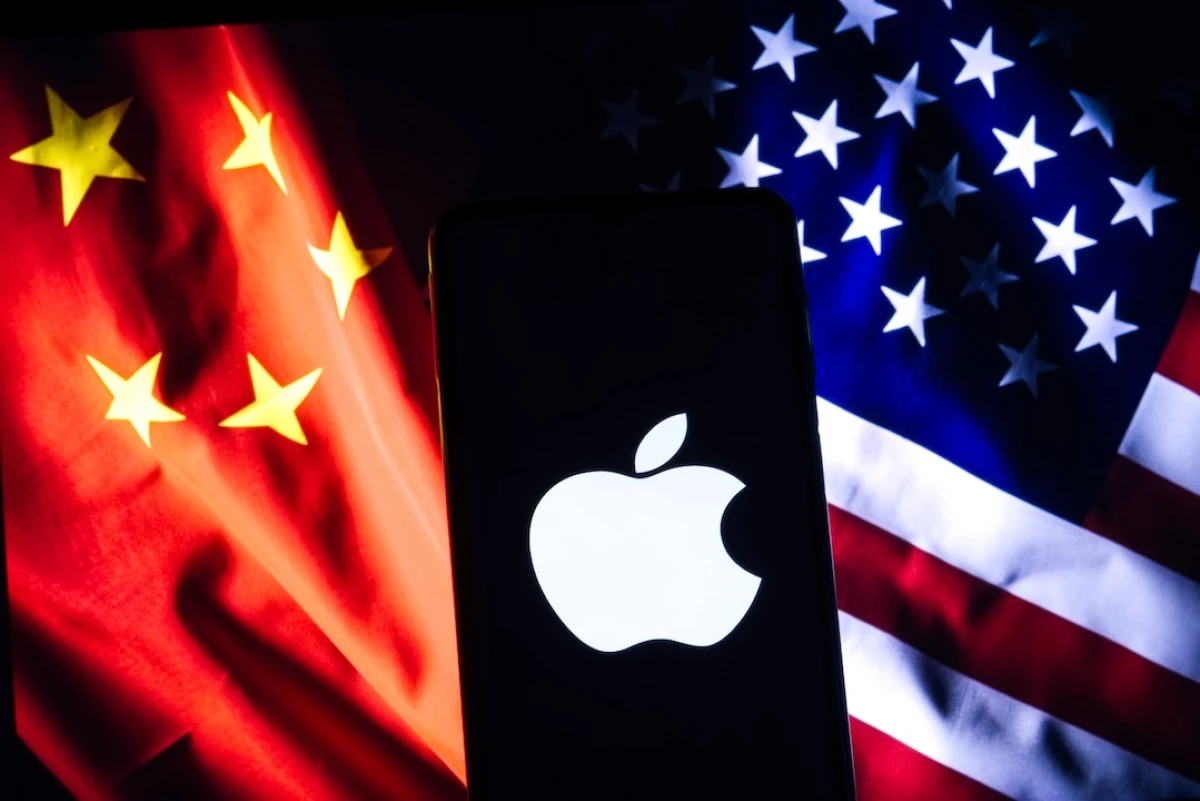#What You Need To Know
Apple Inc. (NASDAQ: AAPL) experienced a 9.6% decline in iPhone shipments in the first quarter of the year, falling short of analysts' estimates. This drop in shipments is primarily attributed to weak sales in China, where competition from local rivals like Huawei and Xiaomi, as well as a ban on foreign devices in the workplace, have impacted sales. This decline is significant considering the overall smartphone market saw a 7.8% rise in shipments during the same period. Samsung regained the top spot in the market, while Transsion and Xiaomi also saw increased shipments.
Experts believe that while Apple has shown resilience in the past, maintaining that growth and market share will be challenging in the future. As the market continues to recover, it is expected that Android devices will grow at a faster rate than Apple. The decline in iPhone shipments is also influenced by increased competition in China and excess inventory in other regions. Despite this, Apple has been able to maintain higher average selling prices by offering discounts and consumers showing a preference for premium models.
Sign up for Investing Intel Newsletter
#Why This Is Important for Retail Investors
Impact on Apple's financial performance: The decline in iPhone shipments is a crucial factor for retail investors to consider as it directly affects Apple's financial performance. Lower shipments could potentially lead to decreased revenues and impact the company's earnings.
Significance of the Chinese market: China is a vital market for Apple, accounting for a substantial portion of its sales. The struggle with iPhone sales in China highlights the challenges the company faces in this key market, which can have significant implications for the overall growth and profitability of Apple.
Competitive landscape in the smartphone industry: The competition among smartphone manufacturers is intense, especially in China. Retail investors need to understand the competitive landscape and how Apple is faring against rivals like Huawei and Xiaomi. The performance of Apple's iPhone shipments provides insights into its market share and competitive position.
Market trends and consumer preferences: The decline in iPhone shipments can also provide retail investors with valuable insights into market trends and consumer preferences. It indicates the shifting dynamics of the smartphone industry, including the rising popularity of Android devices and the preference for premium models.
Potential implications for Apple's stock: As an investor, it's essential to evaluate the impact of iPhone shipments on Apple's stock performance. Lower shipments could lead to decreased investor confidence and potentially affect the stock price. Understanding these implications can help retail investors make informed decisions regarding their investment in Apple.
#How Can You Use This Information?
Here are some of the investing ideas that can be explored using this information:
Growth Investing
Retail investors can analyze this information to assess Apple's potential for future growth in the smartphone market and make investment decisions accordingly.
Growth investing focuses on stocks of companies expected to grow at an above-average rate compared to other stocks in the market; learn more in our article titled 'What is Growth Investing?'.
Defensive investing
The decline in iPhone shipments may indicate challenges faced by Apple, prompting retail investors to consider a defensive investing approach, focusing on more stable and resilient sectors or companies.
Defensive Investing focuses on securing a portfolio by choosing companies that are less sensitive to economic downturns.
Sector Rotation
By examining the performance of the smartphone industry and Apple's position within it, retail investors can determine whether sector rotation strategies, such as shifting investments to industries with better growth prospects, are warranted.
Sector Rotation is the practice of shifting investment capital from one industry sector to another to take advantage of the economic cycle.
Diversification
Retail investors who hold Apple in their portfolio may evaluate the impact of the decline in iPhone shipments on their overall diversification strategy and consider rebalancing or adjusting their holdings accordingly.
Diversification spreads investments across various assets to reduce risk and volatility in a portfolio.
#Read What Others Are Saying
Reuters: Apple loses top phonemaker spot to Samsung as iPhone shipments drop, IDC says
Morningstar: Magnificent No More? Apple and Tesla Stocks Weigh on the Market
Sign up for Investing Intel Newsletter
